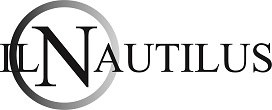Brussels–Inland waterway transport (IWT) since the beginning of the strikes in France is targeted and restricted in its free movement both on the river Rhine and the French waterways. Due to this still lasting situation, the barge owners and operators sailing on these waterways face blockades at locks with serious consequences in terms of delays and additional costs. This leads to an increased unreliability of the sector towards its clients, causing EBU and ESC to address the European Commission to call upon France for taking actions to end the infringement of the free movement of goods.
ESC, the European Shippers Council, representing the interests of cargo owners in Europe, and EBU, the European Barge Union, representing barge owners and operators in Europe, therefore are jointly concerned about the free movement of goods within the European Union.
For both organisations, the free movement of goods is of paramount importance. “Although the free movement of goods is not an “absolute freedom”, in our view it should be guaranteed as much as possible. The current situation in France is of great concern to us. Actions by the Rhine Commission towards the French authorities so far only had limited results. Also, a number of vessels on the Rhone are prevented from sailing between two lock complexes. This situation leads to major negative consequences, in particular lots of additional costs, for the European economy but also causes great inconvenience to the crews involved”, Godfried Smit and Theresia Hacksteiner, the Secretaries General of ESC and EBU emphasise. Consequently, this means that actions that hinder the free movement of goods should be limited in duration and impact.
They refer to the judgment (C-265/97), in which the European Court of Justice established that a Member State has a duty to take action against conduct by private individuals which actually undermines the effectiveness of Community provisions. The facts of the case show that the case involves a breach of the free movement of goods by the public authorities if they systematically fail to take action over a long period against serious and obvious actions by private individuals.
In line with this ruling, they turned to the European Commission to call upon France with the aim of ending the infringement of the free movement of goods.








